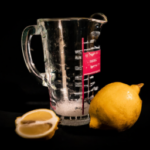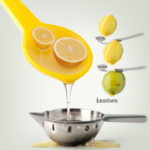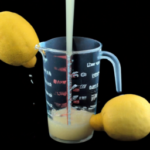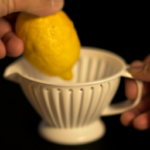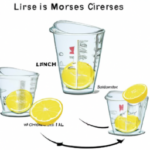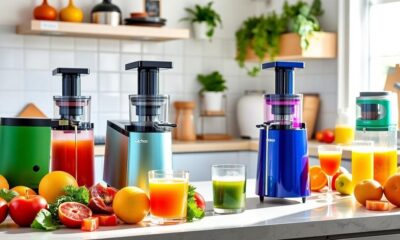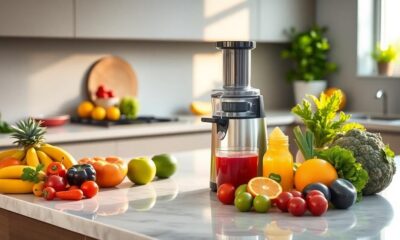Juice Tips and Tricks
How Much Juice In 1/2 Lemon
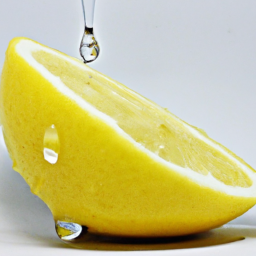
I’ve always wondered how much juice you could get out of one lemon. Being a fan of both cooking and baking, I frequently stumble upon recipes specifying a certain quantity of lemon juice. Yet, lemons aren’t all the same, and the juice yield can fluctuate based on numerous conditions. In my experience, the juice content in half a lemon can vary quite a bit depending on factors like the size, ripeness, and even the temperature of the lemon. On average, though, you might expect to get around one to two tablespoons from half a lemon. To maximize the juice yield, I usually roll the lemon on the countertop before cutting, which helps break down the pulp and release more juice.
So, I decided to do some research and experimentation to find out just how much juice can be extracted from half a lemon. Through my research, I discovered that the amount of juice in half a lemon can vary widely, depending on the size and ripeness of the lemon, as well as how it is juiced.
While some lemons may yield just a few drops of juice, others can produce up to three tablespoons or more. Additionally, the amount of juice can also be affected by the temperature of the lemon and the pressure applied when juicing.
With so many variables to consider, it’s important to understand how to get the most juice out of your lemons, whether you’re making a refreshing glass of lemonade or adding a pop of flavor to your favorite dish.
Key Takeaways
- Lemon juice yield can vary based on factors like size, ripeness, temperature, and pressure applied when juicing.
- Hand-held citrus juicers or small manual presses can extract maximum juice, with a typical yield of about 2 tablespoons for a medium-sized lemon.
- Rolling the lemon on a hard surface before juicing, using a citrus reamer or juicer, and microwaving it before squeezing can help maximize yield.
- Adjusting the amount of lemon juice can control tartness of dish, and it is packed with nutrients like vitamin C, potassium, and folate.
Understanding the Variability of Lemon Juice
You might be surprised to learn that the amount of juice in a half lemon can vary greatly depending on factors such as the ripeness of the fruit and the amount of pressure applied when squeezing. These variability factors can affect the amount of acid content in the juice, which can have implications for cooking and baking.
For example, a ripe lemon with a thin skin will likely yield more juice than an unripe lemon with a thicker skin. Similarly, applying more pressure when squeezing the lemon can produce more juice, but it can also result in a higher concentration of bitter compounds.
It’s important to keep these factors in mind when using lemon juice in recipes, as the acidity can affect the overall flavor and texture of the dish. With this in mind, let’s explore how to measure the juice yield from half a lemon.
Measuring Juice Yield from Half a Lemon
When I measure juice yield from half a lemon, I typically use a hand-held citrus juicer or a small manual press. These tools help extract the maximum amount of juice from the lemon.
The typical yield for different lemon sizes can vary, but on average, a medium-sized lemon yields about 2 tablespoons of juice.
Tools for Measuring Juice
There’s no denying that having the right tools, like a citrus juicer, can make measuring the juice from half a lemon a breeze. Juice extraction can be a messy and frustrating process without the proper equipment.
Lemon squeezing techniques vary, but using a manual or electric citrus juicer is a reliable way to measure the juice from half a lemon with minimal effort. Manual citrus juicers work by applying pressure to the lemon half, forcing the juice out of the pulp and into a container. Electric juicers work similarly, but with the added convenience of motorized assistance. These tools not only make measuring juice yield more efficient, but they also prevent excess pulp and seeds from getting mixed in with the juice.
With these tools, measuring the juice from half a lemon has never been easier. When it comes to measuring the juice from half a lemon, the typical yield for different lemon sizes can vary. Understanding the amount of juice that can be extracted from a specific size of lemon is important for recipes that require precise measurements.
By using the right tools and knowing the typical yield for different lemon sizes, you can easily measure the juice from half a lemon and ensure your recipe turns out just right.
Typical Yield for Different Lemon Sizes
Knowing the typical yield for various sizes of lemons is crucial for achieving recipe precision and can be easily accomplished with the right tools. Lemon juice yields can vary greatly depending on the size of the lemon, with smaller lemons yielding less juice than larger ones. It’s important to keep in mind that the taste of the juice may also vary slightly due to differences in acidity levels between different types of lemons.
Here are some size comparisons to keep in mind when juicing lemons:
- Small lemons typically yield about 2 tablespoons of juice.
- Medium lemons typically yield about 3 tablespoons of juice.
- Large lemons typically yield about 4 tablespoons of juice.
When juicing lemons, there are a few techniques you can use to maximize the yield. Rolling the lemon on a hard surface before juicing can help break up the pulp and release more juice. Additionally, using a citrus reamer or juicer can help extract more juice from the lemon.
Understanding the typical yield for different sizes of lemons and utilizing these juicing techniques can help ensure you get the most juice possible for your recipes.
When it comes to getting the most juice out of your lemons, there are a few tips and tricks you can follow.
Tips for Getting the Most Juice Out of Your Lemons
Squeeze your lemons with a firm grip and twist to get the most juice out, just like you would wring out a wet towel. But, did you know that there are other ways to maximize the juice yield from your lemons?
Here are some tips to help you extract every last drop of juice from your lemons. First, roll your lemon on a hard surface, like a countertop, before cutting it open. This helps to break down the membranes inside the lemon and release the juice. You could also microwave your lemon for 10-15 seconds before squeezing it. This method warms up the fruit and makes it easier to extract the juice.
If you’re looking for creative recipes that use lemon juice but don’t have any lemons on hand, you can use substitutes such as vinegar or lime juice. However, keep in mind that these substitutes will change the flavor of your dish. With these tips, you’ll be able to get the most juice out of your lemons and use it in any recipe without worrying about running out.
Now that you know how to get the most juice out of your lemons, let’s talk about how to avoid bitterness in your lemon juice.
Avoiding Bitterness in Lemon Juice
To ensure your lemon juice is smooth and flavorful, you’ll want to take a few extra steps in preventing bitterness. Lemon juice can quickly become bitter if the white pith of the lemon is included in the juice. To avoid this, make sure to only juice the flesh of the lemon and leave the pith behind. Additionally, removing the seeds before juicing can also help prevent bitterness.
Another way to prevent bitterness is to use a pinch of salt. This may sound counterintuitive, but adding a small amount of salt to the lemon juice can actually enhance the flavor and balance out any bitterness. Lemon juice preservation is also important in preventing bitterness. To keep your lemon juice fresh, store it in an airtight container in the refrigerator for up to a week. Now that you know how to prevent bitterness in your lemon juice, let’s talk about storing leftover lemon juice.
Storing Leftover Lemon Juice
If you have some leftover lemon juice, you can easily store it in an airtight container in the fridge for up to a week. However, it’s important to store it properly to preserve its flavor. Here are three tips to help you make the most of your leftover lemon juice:
-
Use a glass container: Lemon juice can react with plastic or metal containers, affecting the taste and quality of the juice. Therefore, it’s best to store it in a glass container.
-
Cover the container tightly: Air exposure can cause the juice to spoil quickly, so make sure to cover the container tightly with a lid or plastic wrap.
-
Freeze it for longer storage: If you don’t plan to use the leftover lemon juice within a week, you can freeze it in ice cube trays. This way, you can easily use it in recipes later on without it going bad.
Preserving the flavor of leftover lemon juice is important, especially if you plan to use it in recipes.
In the next section, I’ll discuss some tips for using lemon juice in recipes.
Using Lemon Juice in Recipes
When I use lemon juice in recipes, I always keep in mind the common recipe measurements. For example, a tablespoon of lemon juice is usually equivalent to the juice of half a lemon.
However, I also adjust the amount of lemon juice according to my personal taste preference. It’s important to remember that while the recipe may call for a specific amount of lemon juice, it’s ultimately up to the individual to adjust the flavor to their liking.
Common Recipe Measurements
Hey, did you know that when it comes to using lemon juice in recipes, most measurements are standardized? Common recipe measurements include cups, tablespoons, and teaspoons. This makes it easy to follow recipes and achieve consistent results.
However, if you’re feeling creative and want to experiment with different lemon recipes, it’s good to know that there are substitutes for lemon juice that you can use, such as lime juice or vinegar.
When using lemon juice in recipes, it’s important to keep in mind that the amount of juice in one lemon can vary. On average, one medium-sized lemon will yield about 2-3 tablespoons of juice. However, the amount of juice can depend on factors such as the ripeness of the lemon and how you extract the juice.
If you prefer a stronger lemon flavor in your recipe, you can adjust the amount of lemon juice accordingly to your personal taste. This can be done by adding more or less lemon juice than the recipe calls for.
Adjusting for Personal Taste
In the previous subtopic, we discussed common recipe measurements, which are essential to know when following a recipe. However, recipes aren’t set in stone, and adjusting them to suit your personal taste is part of the fun of cooking.
Experimenting with ratio is a great way to adjust a recipe to your liking. When it comes to lemon juice, adjusting the ratio can help control the tartness of a dish. Some people prefer a more acidic taste, while others find it overpowering.
To adjust the tartness, try adding a little sugar or honey to the recipe to balance out the acidity. Alternatively, you can add more lemon juice if you prefer a tarter taste. It all comes down to personal preference, so don’t be afraid to experiment until you find the perfect ratio for your taste buds.
Overall, adjusting the ratio of lemon juice in a recipe is a fun way to experiment and create a dish that suits your taste.
Next, let’s dive into the health benefits of lemon juice and how it can improve our well-being.
Health Benefits of Lemon Juice
I’m excited to talk about the health benefits of lemon juice!
Did you know that lemon juice is packed with nutrients like vitamin C, potassium, and folate?
Not only that, but it has the potential to improve digestion, boost immunity, and even lower the risk of certain diseases.
Let’s explore the research and evidence behind these claims to see just how beneficial lemon juice can be for our health.
Nutritional Profile
Did you know that a half lemon contains essential vitamins such as vitamin C and potassium? Not only that, but it also has a significant amount of fiber and small amounts of other vitamins and minerals. The nutritional profile of lemons makes them a great addition to any diet.
Take a look at the table below to see the specific nutritional breakdown of a half lemon, including juice extraction, acid content, and other important nutrients:
| Nutrient | Amount per 1/2 Lemon |
|---|---|
| Calories | 6 |
| Carbohydrates | 2 grams |
| Fiber | 1 gram |
| Vitamin C | 30% of the daily value |
| Potassium | 1% of the daily value |
| Folate | 1% of the daily value |
| Calcium | 1% of the daily value |
These nutrients play a vital role in maintaining good health and can even provide potential health benefits. In the next section, we will explore these benefits in more detail.
Potential Health Benefits
Get ready to add some zing to your health routine – lemons pack a powerful punch of potential health benefits! Lemon juice is a great source of vitamin C, which is essential for maintaining a healthy immune system. It also contains antioxidants that can help protect your cells from damage caused by free radicals.
In addition, studies have shown that lemon juice may have potential weight loss benefits, as it can help increase feelings of fullness and reduce calorie intake. Recipes using lemon juice are a great way to incorporate this nutritious fruit into your diet. Lemon juice can be used in a variety of dishes, from savory to sweet.
For example, it can be used to make a tangy salad dressing, added to marinades for meat or fish, or used to flavor desserts like lemon bars or lemon meringue pie. And if you’re looking to shed a few pounds, try starting your day with a glass of warm lemon water to help boost your metabolism and aid in digestion.
Moving on to other uses for lemons, they can also be used for household cleaning and beauty treatments.
Other Uses for Lemons
Lemons are versatile fruits that can be used for more than just adding flavor to dishes. In fact, there are many non-culinary uses for lemons that make them a staple in many households. Here are just a few examples:
-
Lemons can be a great alternative to expensive and harsh cleaning chemicals. Mix lemon juice with water and vinegar to clean countertops, floors and windows. The acidity in lemons also makes them great for removing stains from clothing and fabrics.
-
Cut a lemon in half and leave it in a bowl in your kitchen or bathroom for a natural air freshener. You can also mix lemon juice with water and spray it around your home to eliminate odors.
-
Lemon juice can be used as a natural toner for your skin. It can also help to lighten dark spots and brighten your complexion. Just be careful not to use too much, as the acidity can be harsh on sensitive skin.
-
Lemon juice can be used to repel insects like ants and mosquitoes. Simply rub a lemon slice on your skin or leave lemon peels around your home to keep insects at bay.
-
The acidity in lemons can also help to remove rust from metal. Cut a lemon in half and rub it directly on the rusted area. Let it sit for a few hours before wiping it clean.
When it comes to using lemons, there are endless possibilities. But before you start using them, it’s important to choose the best lemons for your needs.
Choosing the Best Lemons
As someone who loves using lemons in cooking and baking, I’ve learned that it’s important to choose the best ones for optimal flavor and juice.
When selecting lemons, I consider their seasonal availability, looking for ones that are in season for the best flavor and texture.
I also look for signs of freshness and ripeness, such as a bright, glossy skin and a slightly soft texture when gently squeezed.
Seasonal Availability
You’re probably wondering what times of year you can expect to find fresh and juicy lemons for all your cooking and baking needs. As a virtual assistant, I’ve done some research and found out that lemons are seasonal fruits that are available all year round, but the peak season for lemons is from December to May in the Northern Hemisphere and from June to August in the Southern Hemisphere.
Here are some reasons why seasonal availability is important when it comes to using lemons for your recipes:
-
Better quality: When lemons are in season, they’re at their best quality and have a higher juice content, making them perfect for preserving. This means you’ll get more juice out of your lemons, resulting in more flavorful recipes.
-
Lower cost: When lemons are in season, they’re more abundant and therefore cheaper. This makes it more affordable to stock up on lemons for all your cooking and baking needs.
-
Sustainability: Buying seasonal produce helps support local farmers and reduces the environmental impact of transportation. It also ensures you’re consuming fresh and nutritious food.
With this information, you can plan ahead and purchase lemons during their peak season to ensure you’re getting the best quality and value.
Now, let’s move on to the next section where we’ll discuss how to identify the signs of freshness and ripeness in lemons.
Signs of Freshness and Ripeness
In the previous subtopic, we discussed the seasonal availability of lemons. Now, let’s talk about how to determine the freshness and ripeness of lemons.
As someone who loves to cook and bake, I understand the importance of using fresh and ripe ingredients, especially when it comes to lemons and their acidity levels.
One of the easiest ways to determine the freshness of a lemon is by looking at its skin. A fresh lemon will have a bright yellow color and a shiny, smooth skin. Any discoloration or wrinkles on the skin could indicate that the lemon is past its prime.
Another way to test freshness is by gently pressing the skin with your thumb. If the skin gives slightly, it means the lemon is ripe and juicy. However, if the skin is hard and doesn’t give at all, it could be a sign that the lemon is not as fresh.
Determining the acidity levels of a lemon is also important when it comes to cooking and baking. A lemon that is too ripe may have a lower acidity level, which could affect the overall flavor of your dish.
To test the acidity level, you can slice a small piece of the lemon and taste it. If the lemon is too sour, it may not be as ripe as it should be. However, if the lemon is too sweet, it could indicate that it’s overripe and may not have as much juice as you need.
By paying attention to these signs of freshness and ripeness, you can ensure that you’re getting the most out of your lemons when it comes to both flavor and juice.
Frequently Asked Questions
What is the nutritional value of lemon juice?
Did you know that lemon juice contains high levels of vitamin C, antioxidants and flavonoids? Consuming lemon juice can improve digestion, boost immunity, and promote healthy skin. Lemon juice can also be used as a natural exfoliant in skincare routines.
Can lemon juice be used for cleaning purposes?
Yes, lemon juice can be used as a natural disinfectant for cleaning purposes due to its acidic properties. It can be used to clean surfaces, remove stains, and eliminate odors. It’s an eco-friendly and affordable option for cleaning.
How long can lemon juice be stored in the refrigerator?
I store lemon juice in the fridge to preserve its nutrients and flavor. The shelf life is about 2-3 weeks at a fridge temperature of 40°F or below. I prefer storing it in glass bottles to maintain freshness.
Should I use a specific type of lemon for juicing?
When it comes to lemon juicing, I’ve found that using Meyer lemons yields the best results. They have a sweeter flavor and more juice than other varieties. Other lemon juicing tips include rolling the lemon before juicing and using a citrus juicer for maximum extraction.
Are there any potential side effects of consuming too much lemon juice?
Excessive lemon juice intake can cause dental erosion, heartburn, and gastrointestinal issues. It can also lead to dehydration due to its diuretic properties. Moderation is key to avoid potential health risks.
Conclusion
Overall, understanding the variability of lemon juice is important for getting the most out of your lemons. Measuring juice yield from half a lemon can help you determine how much juice you need for your recipes. Tips like rolling and microwaving your lemons can also help increase juice yield.
One interesting statistic is that lemons contain about 30-40% more juice when they’re at room temperature compared to when they’re cold from the refrigerator. This means that if you want to get the most juice out of your lemons, you should let them sit at room temperature for a bit before squeezing them.
By following these tips and tricks, you can get the most out of your lemons and enjoy their many health benefits.
Cindy thoroughly researches juicing trends, techniques, and recipes to provide readers with practical advice and inspiration. Her writing style is accessible, engaging, and designed to make complex concepts easy to understand. Cindy’s dedication to promoting the advantages of juicing shines through her work, empowering readers to make positive changes in their lives through the simple act of juicing.
Juice Tips and Tricks
How to Make Aloe Vera Juice Taste Better

Tired of the strong flavor of aloe vera juice? No problem, we’ve got the answer for you.
In this article, we’ll share some tips and tricks to make your aloe vera juice taste better. We have tried and tested various methods to enhance the flavor without compromising the health benefits.
From choosing the right juice to adding natural sweeteners and infusing with fruits and herbs, we’ve got all the information you need to transform your aloe vera juice into a delightful and refreshing beverage.
Let’s dive in!
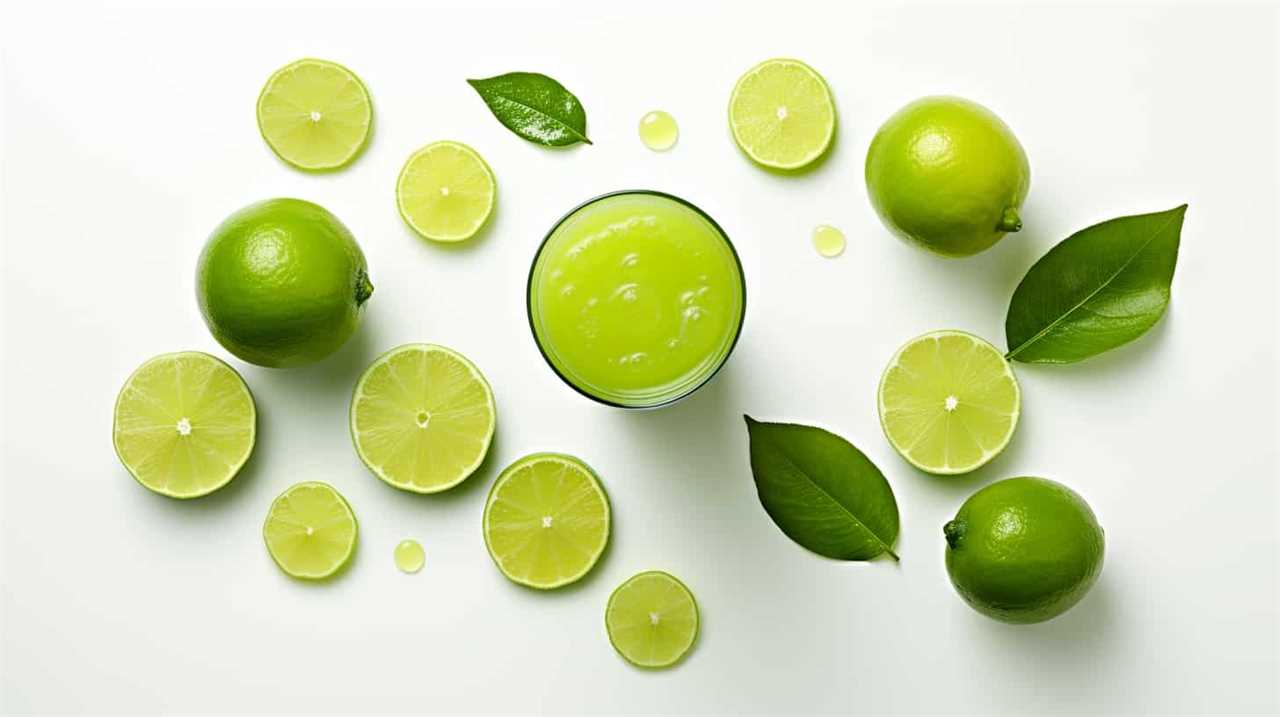
Key Takeaways
- Choose a reputable brand of aloe vera juice that prioritizes quality and uses organic, pure aloe vera.
- Avoid brands that contain added sugars or artificial ingredients.
- Use natural sweeteners like honey, agave syrup, or stevia to enhance the taste of aloe vera juice.
- Experiment with adding fruits, herbs, and other juices to create unique flavor combinations and enhance the health benefits of aloe vera juice.
Choosing the Right Aloe Vera Juice
We can enhance our experience with aloe vera juice by selecting the right brand and type for our preferences. When it comes to finding a reputable brand, it’s important to do some research and read reviews from other consumers. Look for brands that prioritize quality and use organic, pure aloe vera without any added sugars or artificial ingredients. Understanding the health benefits of aloe vera juice is also crucial in making the right choice. Aloe vera is known for its soothing properties, aiding digestion, promoting skin health, and boosting the immune system. By choosing a high-quality brand, we can ensure that we’re getting the maximum benefits from our aloe vera juice.
Now that we know how to choose the right brand, let’s move on to the next step of adding natural sweeteners.
Adding Natural Sweeteners
To enhance the flavor of our aloe vera juice, we can add natural sweeteners such as honey or agave syrup. Using alternative sweeteners not only adds sweetness but also brings unique flavors to the juice. Here are some options to consider:
- Stevia: A natural sweetener derived from the Stevia plant, it’s a zero-calorie alternative to sugar.
- Maple Syrup: This natural sweetener adds a rich and earthy flavor to the aloe vera juice.
- Dates: Pureed dates can be used to sweeten the juice while also providing essential nutrients like fiber.
In addition to using alternative sweeteners, we can enhance the flavor of aloe vera juice by adding spices and extracts. Cinnamon, ginger, or vanilla extract can add warmth and depth to the taste. By experimenting with different combinations of these natural sweeteners, spices, and extracts, we can create a flavor profile that suits our preferences.

Now, let’s move on to the next section and learn how to infuse aloe vera juice with fruits and herbs to further enhance its taste.
Infusing With Fruits and Herbs
As we explore ways to make our aloe vera juice taste better, one option to consider is infusing it with fruits and herbs. Creating unique aloe vera blends by adding fruits and herbs not only enhances the flavor but also adds a touch of freshness and complexity to the juice. For example, combining aloe vera juice with lemon, mint, or berries can create a refreshing drink that’s both delicious and packed with additional nutrients. It’s similar to the ease of making lemonade with bottled juice—quick, convenient, and customizable to suit your preferences. By experimenting with different fruit and herb combinations, you can elevate your aloe vera juice experience while still reaping its health benefits.
Fruits like strawberries, pineapple, or citrus can add a burst of sweetness, while herbs like mint, basil, or ginger can provide a subtle yet refreshing twist. Exploring the benefits of herbal infusions can also be beneficial for our health. For example, adding a few sprigs of lavender can promote relaxation and reduce stress. Additionally, infusing aloe vera juice with rosemary can aid digestion and boost the immune system.
Blending With Other Juices
Let’s try mixing aloe vera juice with different fruit juices to create delicious and refreshing blends. Blending aloe vera juice with other fruits not only enhances its taste but also adds nutritional benefits to your drink. Here are three fruit juices that you can mix with aloe vera juice:

- Orange juice: Combining aloe vera juice with orange juice not only adds a tangy flavor but also boosts your intake of vitamin C, which is essential for a strong immune system.
- Pineapple juice: Mixing aloe vera juice with pineapple juice creates a tropical blend that isn’t only refreshing but also helps in digestion. Pineapple contains bromelain, an enzyme that aids in breaking down proteins and promoting better digestion.
- Watermelon juice: Blending aloe vera juice with watermelon juice creates a hydrating and refreshing combination. Watermelon is rich in water content and contains electrolytes that can help replenish your body’s fluids.
Experimenting With Flavor Combinations
While we can try various flavor combinations with aloe vera juice, it’s important to find the right balance to enhance its taste. Experimenting with different flavors can’t only make the juice more enjoyable but also enhance its health benefits.
Aloe vera juice is known for its numerous health benefits, such as boosting digestion, promoting hydration, and supporting the immune system. By adding complementary flavors, we can create a refreshing summer drink that not only tastes great but also provides a nutritional boost.
Some popular flavor combinations include mixing aloe vera juice with citrus fruits like lemon or orange, adding a splash of coconut water for a tropical twist, or combining it with cucumber and mint for a refreshing and cooling effect.
Don’t be afraid to get creative and find the flavor combination that suits your taste buds best!
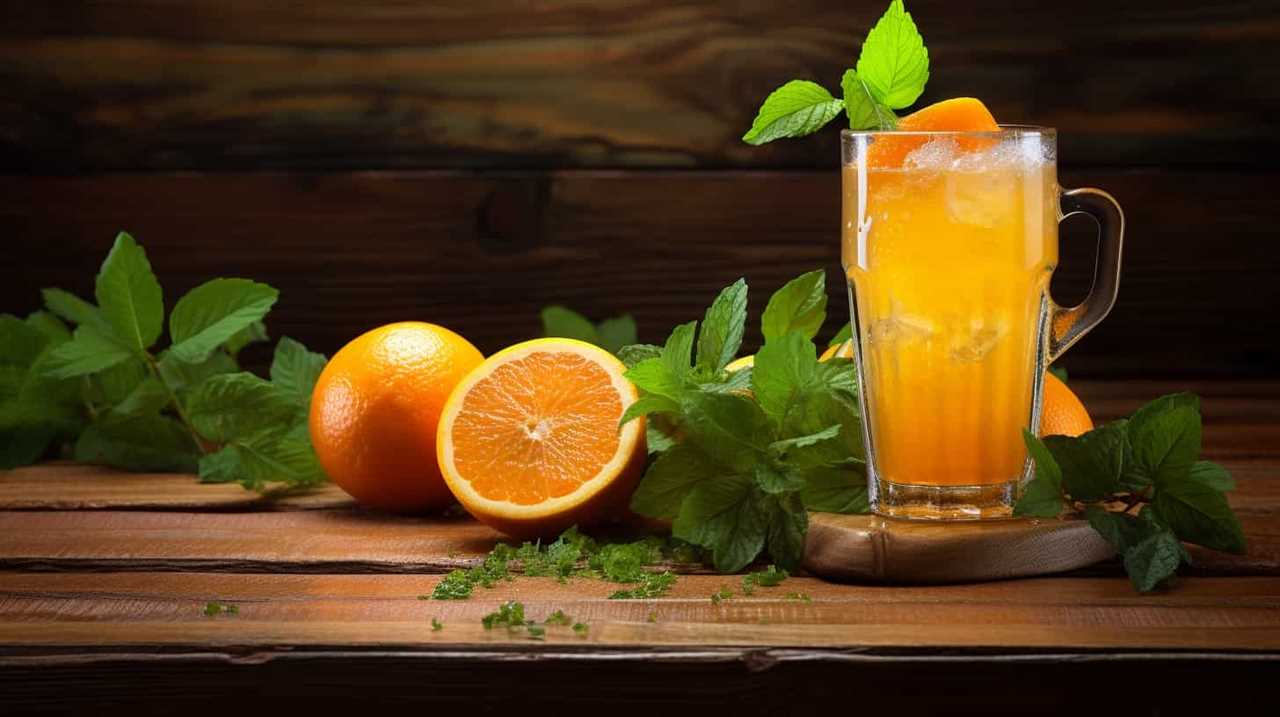
Frequently Asked Questions
Can I Use Store-Bought Aloe Vera Gel Instead of Fresh Aloe Vera for Making Juice?
Yes, you can use store-bought aloe vera gel instead of fresh aloe vera for making juice. However, it’s important to note that fresh aloe vera juice may have more health benefits due to its higher nutrient content.
How Long Can I Store Aloe Vera Juice in the Refrigerator?
Aloe vera juice can be stored in the refrigerator for up to a week. Refrigeration helps maintain the longevity and freshness of the juice, preserving its beneficial properties. It’s important to store the juice in an airtight container to prevent contamination and maintain its quality. Similarly, you might wonder *how long ginger juice lasts*; typically, fresh ginger juice can be refrigerated for about 1–2 weeks as well. Both aloe vera and ginger juices are best consumed within their shelf life to ensure maximum potency and health benefits. Additionally, freezing either juice can extend their shelf life, though some loss of nutrients and potency may occur during the process. When thinking about *how long fresh juice lasts*, it’s crucial to check for signs of spoilage, such as changes in smell, taste, or color, before consuming. To enjoy the best results, it’s always recommended to use fresh ingredients and properly store the juice to ensure you’re getting the most out of its health benefits.
Can Aloe Vera Juice Help With Digestive Issues?
Aloe vera juice can potentially help with digestive issues when taken in appropriate dosages. However, it is important to note that there may be potential side effects. It is always best to consult with a healthcare professional before starting any new supplement regimen.
Can I Use Artificial Sweeteners Instead of Natural Sweeteners in My Aloe Vera Juice?
Using artificial sweeteners in aloe vera juice may affect its taste and potential health benefits. However, natural sweeteners like honey or stevia can enhance the flavor without compromising its nutritional value.

Is It Safe to Drink Aloe Vera Juice Every Day?
Drinking aloe vera juice daily can have numerous benefits, such as improving digestion and boosting the immune system. However, consuming it regularly may also lead to potential side effects like diarrhea or stomach cramps.
Conclusion
In conclusion, making aloe vera juice taste better is easy and enjoyable.
By choosing the right aloe vera juice and adding natural sweeteners, infusing with fruits and herbs, blending with other juices, and experimenting with flavor combinations, you can create a delightful and refreshing drink.
So go ahead and unleash your creativity in the kitchen, and transform your aloe vera juice into a sensational elixir that will transport your taste buds to paradise.
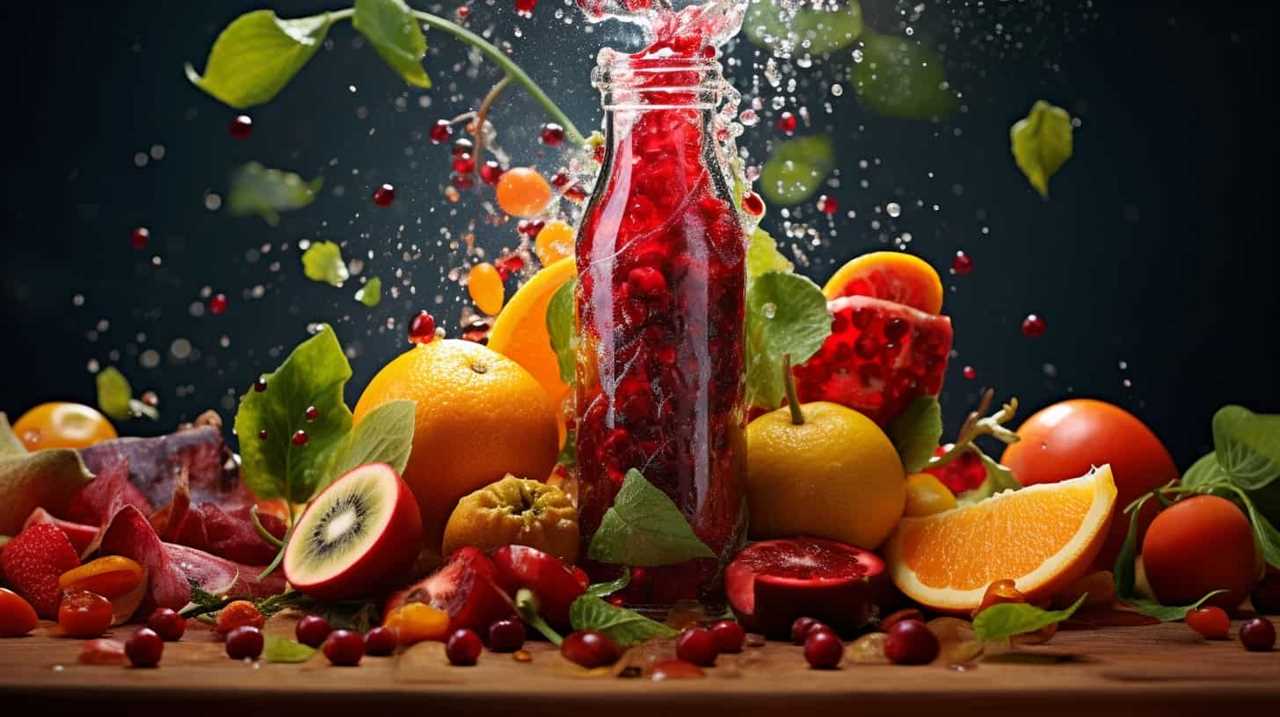
Susannah expertise lies in researching and compiling evidence-based content on juicing, nutrition, and overall health. She is committed to ensuring that The Juicery World offers accurate, up-to-date, and trustworthy information to empower readers to take control of their health. Susannah’s goal is to inspire individuals to embrace juicing as a way to nourish their bodies and live their best lives.
Juice Tips and Tricks
How to Make a Glass of Lemonade With Bottled Lemon Juice

Are you craving a cool glass of lemonade to quench your thirst? Look no further! Try out our perfect recipe using bottled lemon juice that will surely please your taste buds.
In this article, we’ll guide you through the process of creating a tangy and sweet concoction that will leave you feeling refreshed and satisfied.
So grab your ingredients and let’s get started on this delightful journey of serving ourselves and others a glass of pure lemony goodness.
Key Takeaways
- Consider the storage of the bottled lemon juice (dark glass or plastic bottles, protect from light exposure, check expiration date)
- Choose a suitable pitcher and fresh lemons for enhanced flavor
- Store the lemonade concentrate in the refrigerator to maintain freshness
- Adjust the sweetness and tartness to taste with sugar or more lemon juice, and experiment with different sweeteners or additional flavors.
Choosing the Right Bottled Lemon Juice
What are the key factors we should consider when selecting the right bottled lemon juice for our lemonade?

One important factor is how the lemon juice is stored. Look for bottles that are made of dark glass or plastic, as they help protect the juice from light exposure, which can degrade its quality. It’s also important to check the expiration date to ensure freshness.
Another benefit of using bottled lemon juice is convenience. It saves time and effort compared to squeezing fresh lemons. Additionally, bottled lemon juice provides consistent flavor, as the acidity levels are standardized.
When selecting a brand, consider reading reviews and checking for certifications, such as organic or non-GMO.
Gathering the Necessary Ingredients and Tools
How can we gather all the necessary ingredients and tools to make a glass of lemonade with bottled lemon juice? First, we’ll need to collect bottled lemon juice, sugar, and cold water, as well as a pitcher and a spoon for mixing. If you prefer extra flavor, you can also gather ice and optional add-ins like mint or soda water. While preparing the lemonade, it’s easy to understand why some people wonder about other citrus drinks and may ask, “how many oranges per gallon” are needed when making orange juice instead. Once everything is assembled, combine the lemon juice, sugar, and water in the pitcher, stirring until the sugar dissolves. Feel free to adjust the sweetness or tartness to your liking, and don’t forget to add ice or any optional add-ins for an extra refreshing touch. This process might even make you curious about how much juice from oranges is needed when making fresh orange juice compared to using bottled citrus products. Once your lemonade is ready, pour it into a glass and enjoy the refreshing taste. This simple recipe can inspire you to try other homemade juices, such as learning **how to make pear juice** or experimenting with other fruit combinations. Whether you’re using fresh fruits or bottled options, creating your own beverages is a fun and rewarding way to personalize your drinks.
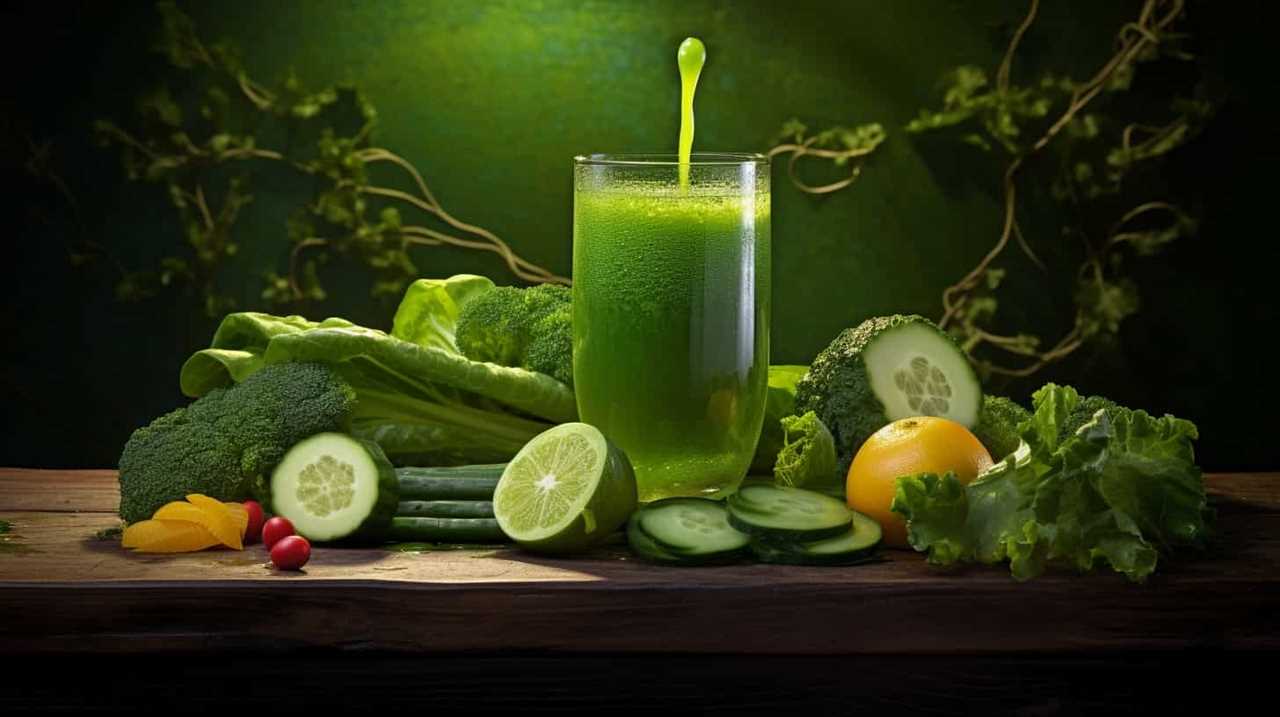
It’s important to start with the right pitcher. Look for a pitcher that’s made of glass or BPA-free plastic, as these materials won’t affect the taste of the lemonade. The pitcher should also have a lid or cover to keep the lemonade fresh and prevent spills.
Now, let’s talk about the lemons. While bottled lemon juice is convenient, using fresh lemons instead can elevate the flavor of your lemonade. Choose lemons that are firm and have a bright yellow color. Give them a gentle squeeze to ensure they’re juicy. To extract the juice, you’ll need a citrus juicer or a reamer. These tools make it easy to get every last drop of juice from the lemons.
Mixing the Lemonade Concentrate
To start mixing the lemonade concentrate, we’ll slowly pour the bottled lemon juice into the pitcher. It’s important to choose the right container for the lemonade concentrate. A pitcher with a lid or a tightly sealed container will help maintain the freshness and prevent any spills or leaks. Once the lemon juice is in the pitcher, we can move on to the next step of adding water and sweetener.
To ensure the lemonade concentrate stays fresh, it’s essential to store it properly. Keep the pitcher in the refrigerator to maintain its cool temperature and prevent any bacteria growth. If you have any leftover concentrate, transfer it to a smaller container with an airtight lid before refrigerating. This will help retain its flavor and prevent any contamination.

Now that we’ve mixed the lemonade concentrate, it’s time to adjust the sweetness and tartness to taste.
Adjusting the Sweetness and Tartness to Taste
We can adjust the sweetness and tartness of the lemonade to taste by adding more sugar or lemon juice, respectively. If you prefer a sweeter lemonade, simply add more sugar and stir until it dissolves completely. You can experiment with different sweeteners such as honey or agave syrup to find the perfect balance of sweetness.
On the other hand, if you want a tangier lemonade, add more lemon juice gradually, tasting as you go until it reaches your desired level of tartness.
Additionally, you can get creative with your lemonade by adding flavors like fresh mint leaves or a hint of lavender. These additions can elevate the flavor profile and create a more refreshing and unique experience.

Now that we’ve adjusted the sweetness and tartness of our lemonade, let’s move on to serving and enjoying your refreshing glass of lemonade.
Serving and Enjoying Your Refreshing Glass of Lemonade
Now let’s sit back, relax, and savor our refreshing glass of lemonade.
When it comes to serving and enjoying this delightful drink, there are a few techniques and garnishing options to consider.
Firstly, serving your lemonade chilled is essential for maximum enjoyment. Ensure that you have chilled glasses or add ice cubes to the glasses before pouring the lemonade.

To add a touch of elegance, you can garnish your lemonade with a slice of lemon on the rim of the glass. For an extra burst of flavor, you could also add a sprig of fresh mint or a few berries.
Remember to gently stir the lemonade before serving to evenly distribute the flavors.
Now, take a sip, feel the refreshing tang of lemon, and let the sweet and tart flavors dance on your taste buds.
Cheers!
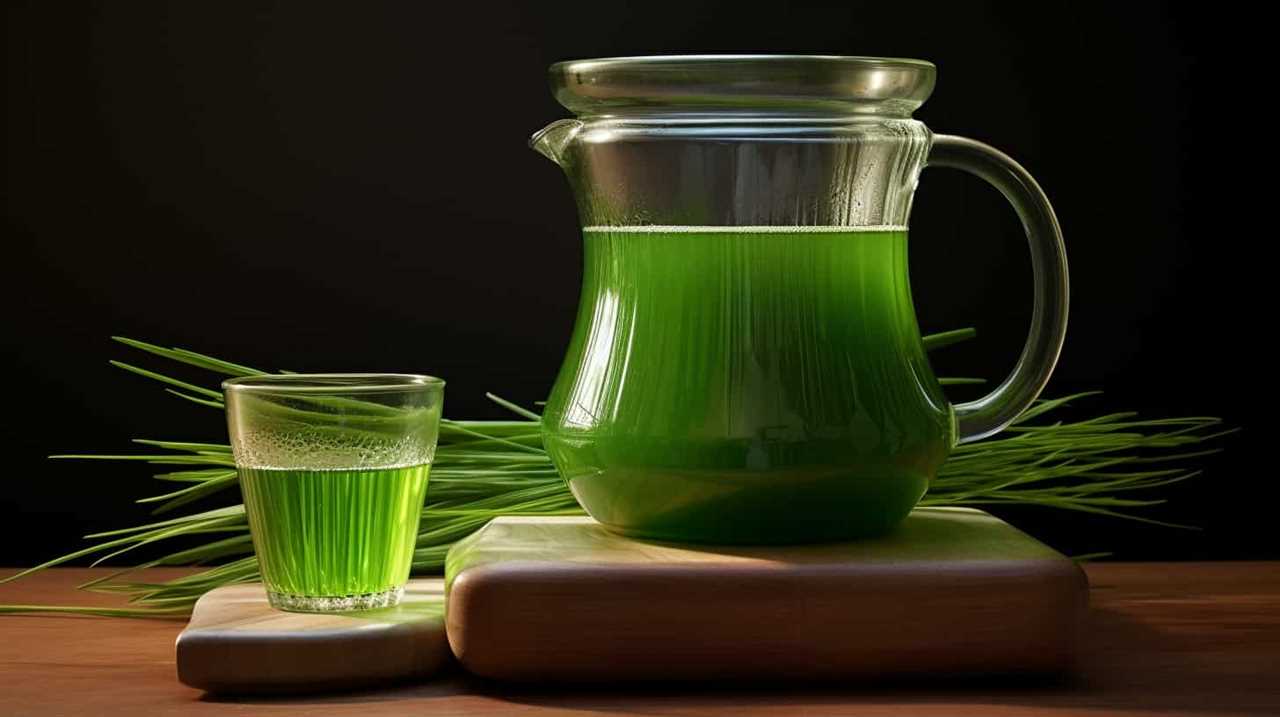
Frequently Asked Questions
Can I Use Fresh Lemons Instead of Bottled Lemon Juice?
Fresh lemons offer numerous benefits over bottled lemon juice. The taste of fresh lemons is unparalleled, providing a vibrant and tangy flavor. Incorporating fresh lemons into your lemonade will elevate its taste and give it a refreshing and authentic twist.
Can I Substitute Sugar With a Different Sweetener?
Substituting sweeteners in lemonade can enhance the flavor and offer health benefits. We’re knowledgeable about alternative sweeteners and can provide precise, detailed instructions on using them in place of sugar.
How Long Does the Lemonade Concentrate Need to Chill in the Refrigerator?
The chilling time for the lemonade concentrate in the refrigerator is typically around 1-2 hours. Using bottled lemon juice offers the benefit of convenience and consistent flavor for a refreshing glass of lemonade.
Can I Add Other Fruits or Flavors to the Lemonade?
Sure, we can definitely add different fruits or flavors to our lemonade. It’s a great way to experiment with unique flavors and create refreshing, personalized drinks. The possibilities are endless!

How Long Does the Lemonade Stay Fresh in the Refrigerator?
Lemonade made with bottled lemon juice can stay fresh in the refrigerator for about 5-7 days. To maximize shelf life, store it in an airtight container and keep it chilled.
Conclusion
And so, with a few simple steps and the right ingredients, a glass of refreshing lemonade is born.
Like a symphony of flavors dancing on your taste buds, this tangy elixir quenches thirst and brings joy on a hot summer day.
Just a sip transports you to a world of citrusy delight, where the sweetness and tartness blend harmoniously.

So go ahead, indulge in the art of lemonade-making and savor every drop of this sun-kissed nectar.
Cheers to the perfect glass of lemonade!
Susannah expertise lies in researching and compiling evidence-based content on juicing, nutrition, and overall health. She is committed to ensuring that The Juicery World offers accurate, up-to-date, and trustworthy information to empower readers to take control of their health. Susannah’s goal is to inspire individuals to embrace juicing as a way to nourish their bodies and live their best lives.
Juice Tips and Tricks
How to Know if Orange Juice Is Bad

We’ve all been in that situation before – reaching for a glass of orange juice and hesitating, unsure if it’s still okay to drink. Fear not! This article will give you the knowledge you need to determine for sure if your orange juice is still fresh or if it’s gone bad.
With a blend of scientific precision and practical tips, we’ll explore color changes, strange smells, off taste, texture changes, and mold or growth that may indicate spoilage.
Let’s dive in and serve ourselves a refreshing glass of certainty!
Key Takeaways
- Color changes in orange juice can indicate a loss of freshness and shelf life extension, but it doesn’t necessarily mean the juice is bad.
- Unusual or off-putting odors in orange juice, such as sour or fermented scents, can be a sign of poor quality.
- An off taste in orange juice, such as sour, bitter, or fermented flavors, suggests that the juice is spoiled.
- Texture changes in orange juice, such as pulp separation or a thicker consistency, can occur as the juice ages, so it’s important to consume it before the expiration date.
Color Changes in Orange Juice
We should be aware that color changes can indicate whether orange juice is bad.

When it comes to orange juice, color is a crucial factor to consider. As oranges are exposed to air, an oxidation process occurs, which leads to changes in color. Fresh orange juice has a vibrant orange hue, indicating its freshness and high nutritional value.
However, as time passes, the juice may undergo a color change, turning dull or brownish. This change in color is a result of the oxidation process, which affects the flavor and quality of the juice. It’s important to note that while a change in color doesn’t necessarily mean the juice is bad, it does indicate that the juice is losing its freshness and shelf life extension.
Therefore, it’s advisable to consume orange juice when it’s at its freshest, as indicated by its vibrant orange color.
Strange Smells in Orange Juice
When it comes to evaluating orange juice, we should be cautious of any strange smells or odors. A fresh, pleasant smell is indicative of good quality orange juice. However, if you notice any unusual or off-putting odors, it may be a sign that the juice has gone bad. These smells can range from a sour or fermented scent to a rancid or moldy aroma.

It’s important to note that while some natural variations in scent can occur due to the specific variety of oranges used, any strong or unpleasant smells should raise concerns. If you have citrus fruit allergies, it’s especially important to pay attention to the smell of orange juice, as it could indicate the presence of spoilage or contamination.
Ensuring the quality of orange juice is essential as it’s a popular beverage known for its health benefits, including being rich in vitamin C and antioxidants.
Off Taste of Orange Juice
Our taste buds can detect even the slightest hint of an off taste in orange juice, which can indicate that it has gone bad. The taste of orange juice should be fresh, tangy, and slightly sweet. If it tastes sour, bitter, or fermented, it’s likely spoiled.
One common cause of an off taste in orange juice is the use of overripe oranges. When oranges become overripe, their flavor profile changes, resulting in a less pleasant taste. Another factor to consider is the expiration date. Orange juice that has passed its expiration date is more likely to develop an off taste. It’s important to check the expiration date before consuming orange juice to ensure its freshness and quality. Additionally, improper storage conditions, such as leaving the juice at room temperature for extended periods, can lead to the development of unpleasant flavors. Storing orange juice in the refrigerator helps maintain its freshness for longer. For those exploring different juice options, aloe vera juice flavor tips suggest pairing tart juices with milder flavors to balance the overall taste.
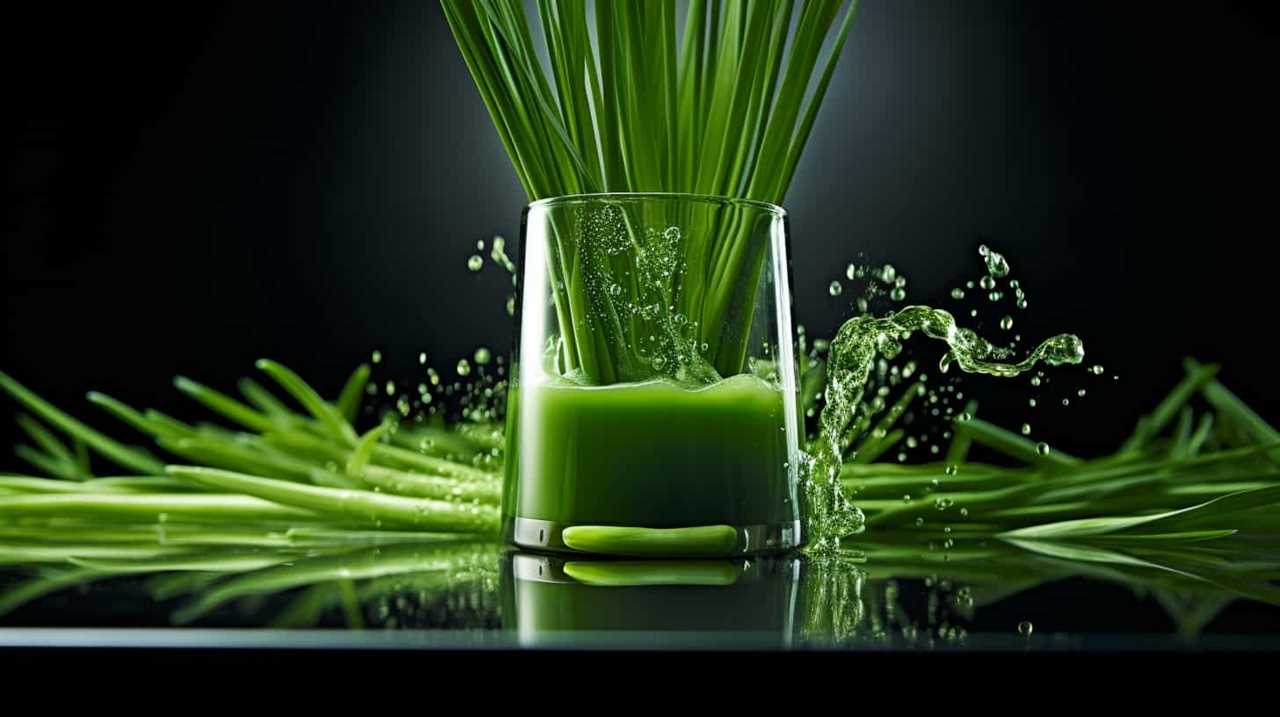
Now, let’s move on to discuss the texture changes in orange juice.
Texture Changes in Orange Juice
As we explore the texture changes in orange juice, it’s important to note that certain factors can cause it to become thicker or develop sediment. One common texture change in orange juice is pulp separation, where the pulp separates from the liquid and settles at the bottom. This can occur naturally over time, as the pulp particles become denser and sink.
Another factor that can affect the texture of orange juice is the expiration date. As orange juice ages, it may start to develop a thicker consistency and even form sediment. This is a result of the natural breakdown of the juice’s components. Therefore, it’s crucial to check the expiration date on orange juice and consume it before it reaches its expiration date to avoid any undesirable texture changes.
Mold or Growth in Orange Juice
We need to be aware of the possibility of mold or other growth occurring in orange juice. Mold can develop in orange juice if it isn’t stored properly or if it has passed its expiration date.
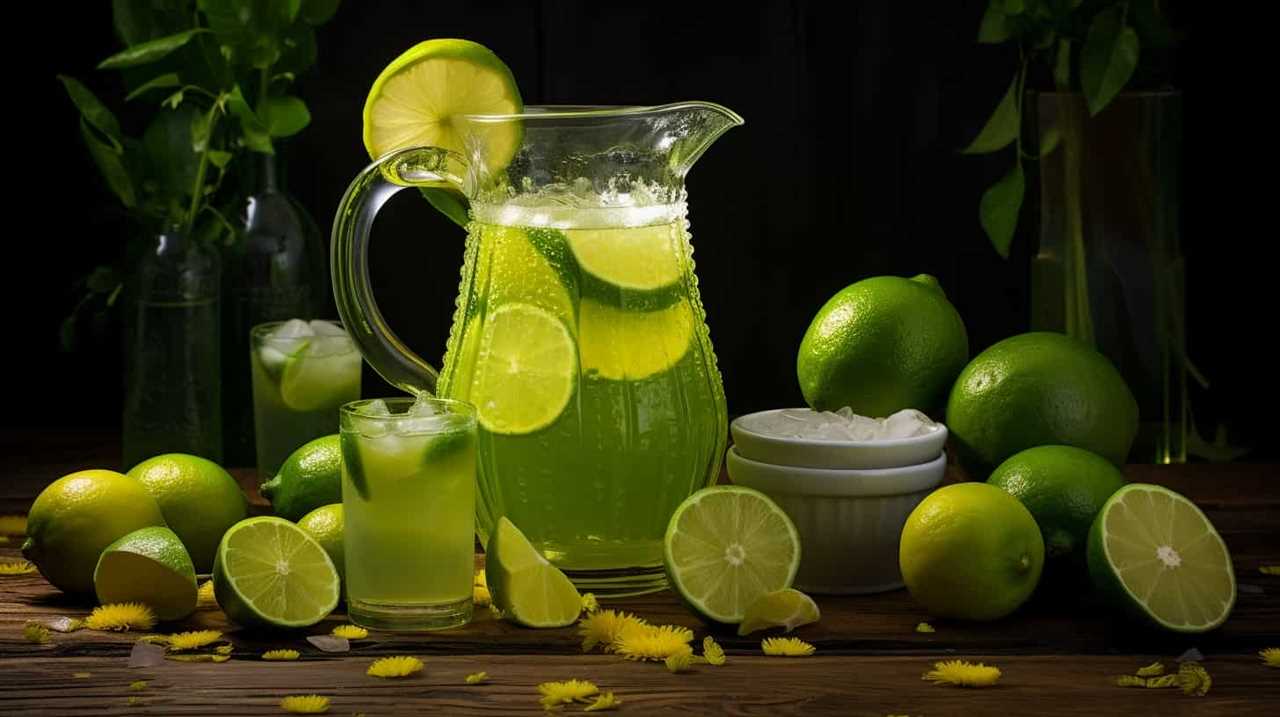
To prevent mold growth, it’s important to follow these steps:
- Store orange juice in the refrigerator at a temperature below 40°F (4°C).
- Check the expiration date on the bottle before consuming. Discard any orange juice that has expired.
- Keep the container tightly sealed to prevent air and moisture from entering, as these can promote mold growth.
Regularly inspecting orange juice for any signs of mold or unusual growth is essential. If you notice any discoloration, a strange odor, or visible mold, it’s best to discard the juice to avoid any potential health risks.
Frequently Asked Questions
Can Orange Juice Go Bad if It’s Stored in the Freezer for Too Long?
Frozen orange juice can potentially lose its nutrients and change its taste if stored in the freezer for too long. It is important to check for signs of spoilage before consuming it.
How Long Can Orange Juice Stay Fresh in the Refrigerator Once It’s Opened?
Once opened, orange juice can stay fresh in the refrigerator for about 7-10 days. To maintain its freshness, store it properly by keeping it tightly sealed and at a consistently cold temperature. If the orange juice develops an off odor, flavor, or appearance, it’s best to discard it to avoid any potential health risks. Factors like exposure to air and varying temperatures can influence how long orange juice lasts, so it’s crucial to handle it with care. Always check the expiration date as a general guide, but remember that proper storage can extend its freshness slightly. Additionally, avoid leaving the orange juice out at room temperature for extended periods, as this can significantly shorten how long orange juice lasts. Freezing the juice can be another option to extend its shelf life, but be aware that this may alter its texture and taste once thawed. By following these precautions, you can ensure your orange juice stays fresh and safe to consume.
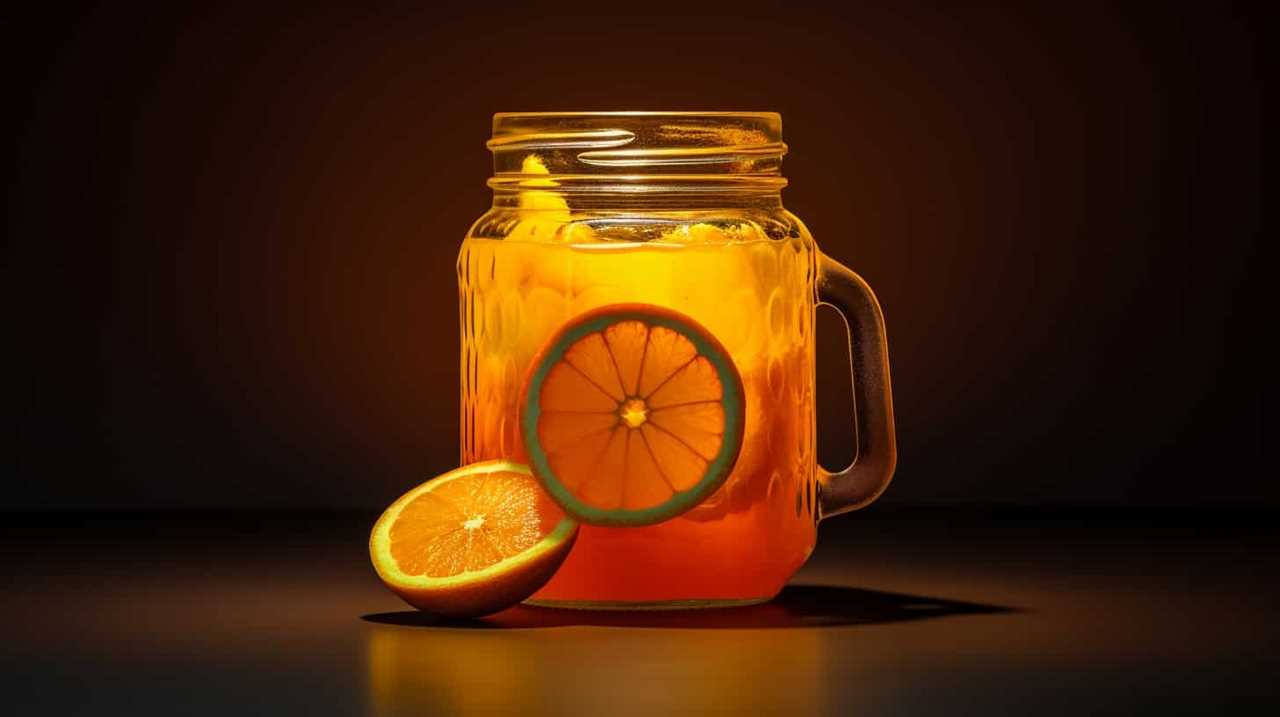
Is It Safe to Consume Orange Juice That Has Been Left Out at Room Temperature Overnight?
Left out orange juice may not be safe to drink as it can harbor harmful bacteria. Signs of spoiled orange juice include a sour smell, mold growth, and a change in color or taste.
Can Orange Juice Develop Harmful Bacteria if It’s Past Its Expiration Date but Still Looks and Smells Fine?
Orange juice can cause food poisoning if it develops harmful bacteria, even if it looks and smells fine. Signs of spoiled orange juice include a sour smell, mold growth, and a change in color or taste.
Does the Nutritional Value of Orange Juice Decrease as It Starts to Go Bad?
As orange juice goes bad, its nutritional value decreases. The longer it sits on the shelf, the more nutrients it loses. Signs of spoilage include a sour smell, off taste, and mold growth.
Conclusion
In conclusion, determining if orange juice is bad requires careful observation of color changes, strange smells, off taste, and texture changes. Just like a detective investigating a case, we must rely on our senses to detect any signs of spoilage.
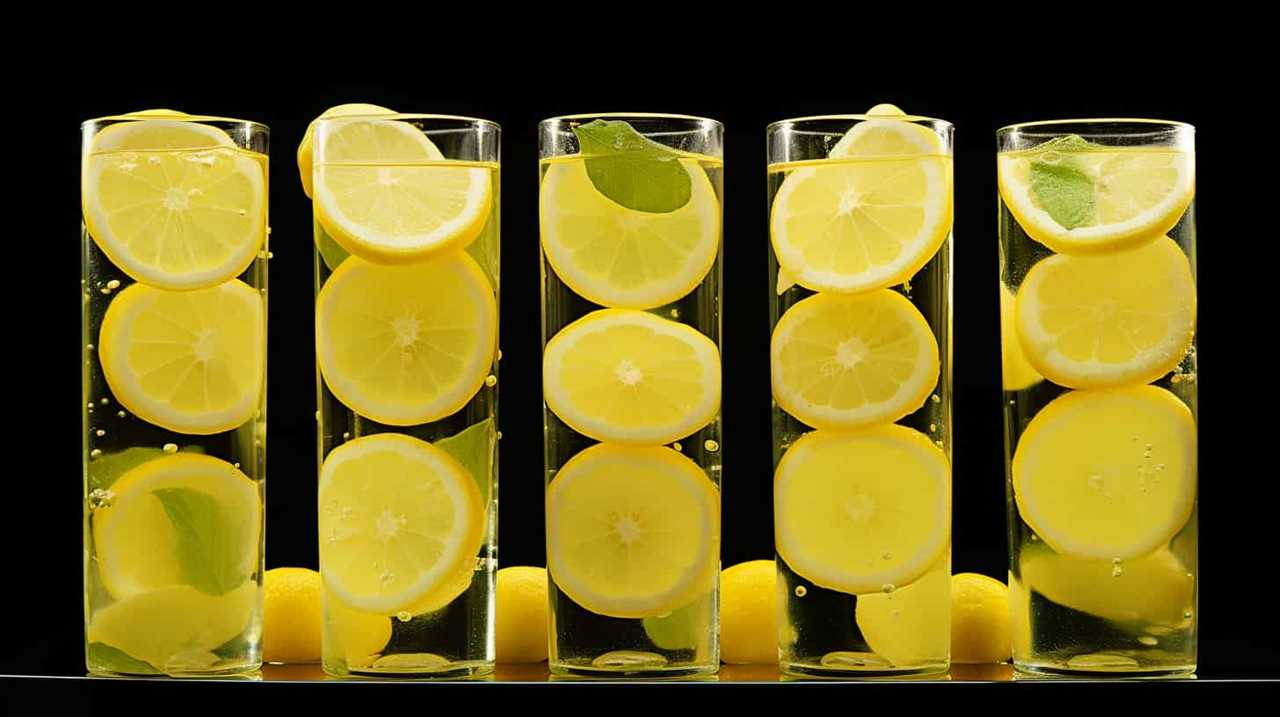
If we detect mold or growth in the orange juice, it’s a clear indication that it’s no longer safe to consume. By remaining vigilant and attuned to these indicators, we can ensure that our orange juice is always fresh and enjoyable.
Susannah expertise lies in researching and compiling evidence-based content on juicing, nutrition, and overall health. She is committed to ensuring that The Juicery World offers accurate, up-to-date, and trustworthy information to empower readers to take control of their health. Susannah’s goal is to inspire individuals to embrace juicing as a way to nourish their bodies and live their best lives.
-

 Vetted2 months ago
Vetted2 months ago15 Best Juices for Diabetics: Refreshing Options That Won’t Spike Your Blood Sugar
-

 Vetted2 months ago
Vetted2 months ago15 Best Decaf Coffee Options for Flavor Lovers Who Need a Caffeine Break
-

 Vetted2 months ago
Vetted2 months ago15 Best Espresso Ground Coffees to Elevate Your Morning Brew
-

 Vetted2 months ago
Vetted2 months ago15 Best K-Cup Coffee Pods for a Perfect Brew Every Time
-

 Vetted2 months ago
Vetted2 months ago15 Best Beans for Espresso: A Guide to Perfecting Your Brew
-

 Vetted2 months ago
Vetted2 months ago15 Best Inexpensive Espresso Machines That Brew Quality Coffee on a Budget
-

 Vetted2 months ago
Vetted2 months ago15 Best Cold Brew Coffees to Keep You Refreshed All Summer Long
-

 Vetted2 months ago
Vetted2 months ago15 Best Kona Coffees to Savor the Rich Flavors of Hawaii




